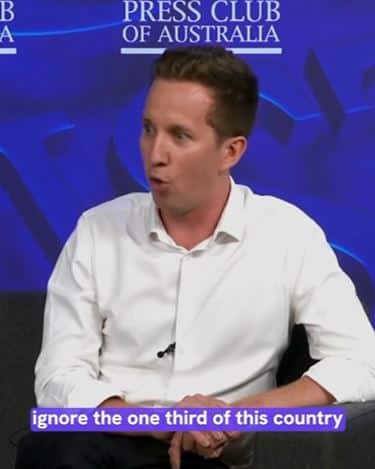Last year, the Greens were widely panned for stonewalling the Albanese government’s plan for a $10 billion housing fun. This left observers wondering if the Greens would put forward an alternative proposal, particularly when Greens local councillors have led campaigns against increasing housing density.
What is the Greens Housing Policy?
The Greens announced a new housing policy this week. They claim their plan will generate 610,000 new homes by 2035, with 360,000 new homes in the first five years.
How will it work? The Greens propose that the federal government itself becomes a property developer. If implemented, the plan would have the federal government renting the properties out directly, with rents capped at 25% of national average income.
A third will be available for first home-buyers to purchase. They could only then be held or sold back to the government.
“Relying on private developers to tackle the housing crisis is like relying on Coles and Woolworths not to rip you off,” said Greens housing spokesperson, Max Chandler-Mather.
“I don’t think anybody has ever solved a housing crisis by adding another government agency,” responded Property Council CEO Mike Zorbas, in debate with Chandler-Mather at the National Press Club.
Chandler-Mather says the properties would be open to rental by “low-income earners and first home-buyers.” On its face, this would signify a massive expansion of the remit of public housing, essentially opening the public portfolio to anyone who doesn’t own property, roughly one in every three Australian adults.

The Parliamentary Budget Office estimated the cost of the scheme at $27.9 billion over the next 10 years. It noted the cost of the scheme seems “highly uncertain” and “very sensitive to the assumptions.”
In the meantime, the housing crisis continues apace. The national vacancy rate for rentals is currently 0.7%, the lowest in documented history.
Chandler-Mather, meanwhile, continues to deny there are issues with the planning and development approvals system. “Private developers hold back supply. They sit on vacant land,” he told media on Tuesday.
Yet in Sydney in FY23, an application to build a multi-unit dwelling took an average of 182 days to receive its first evaluation by council.